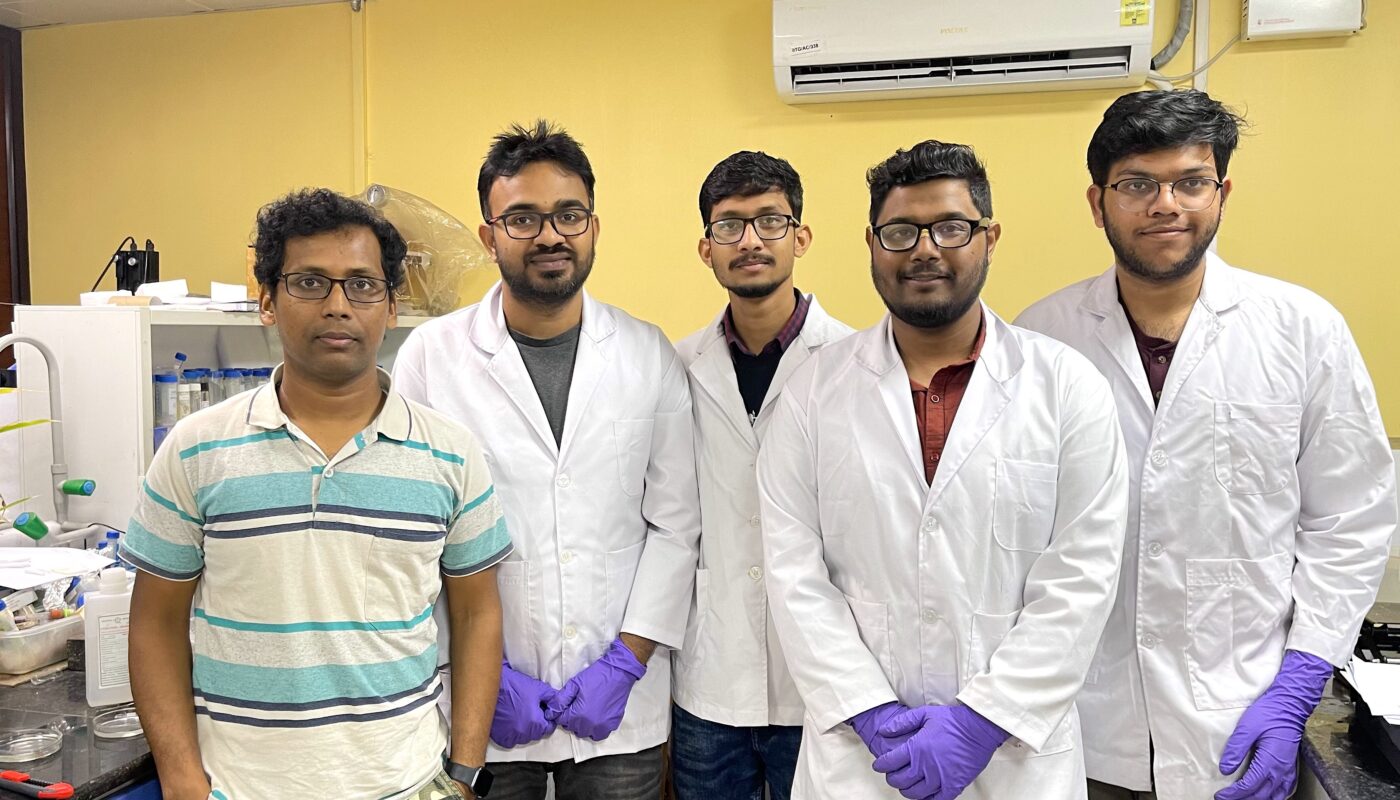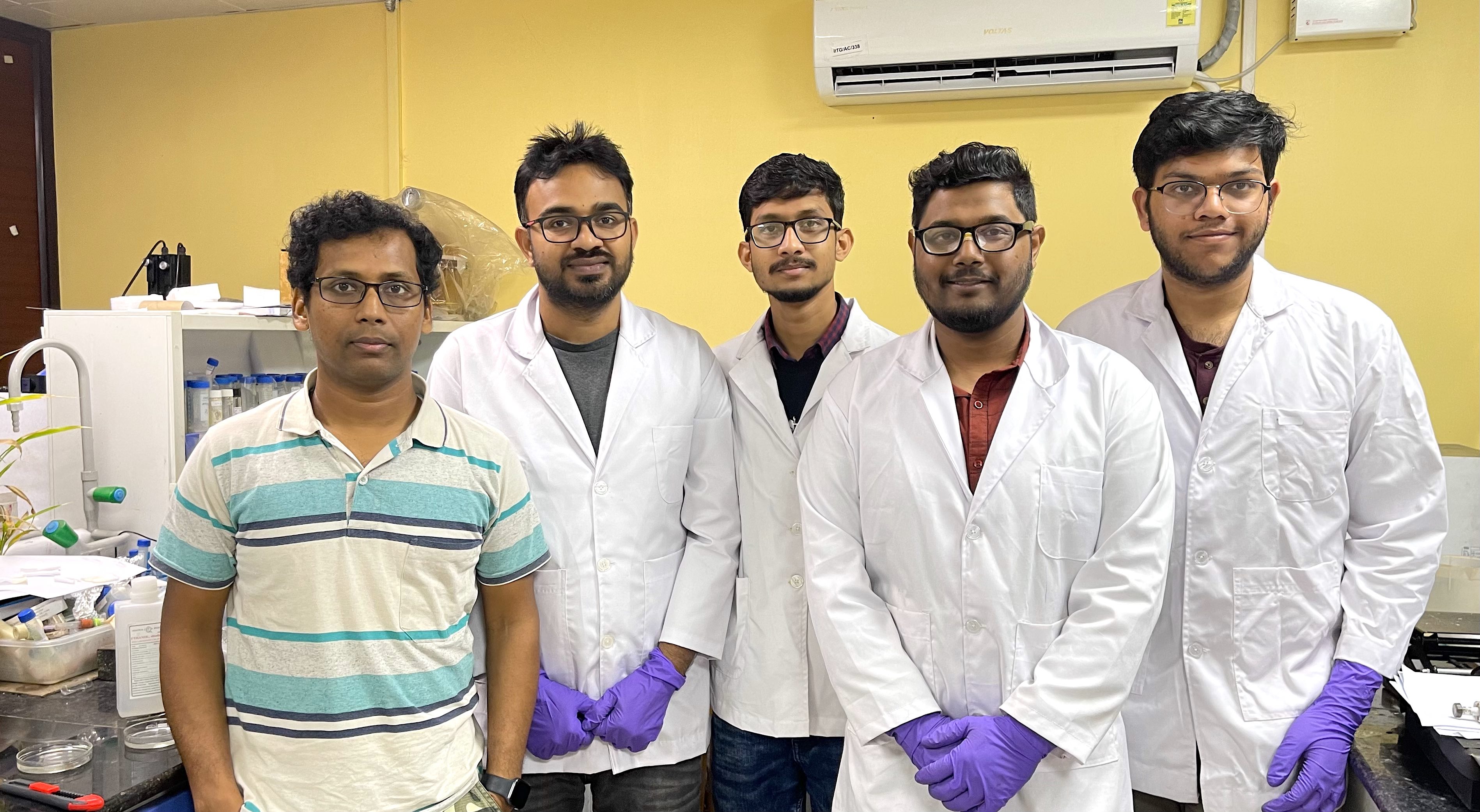- Home
- IIT Guwahati researchers develop ‘Time bomb’ liquid marbles with Nanoclay for controlled drug delivery
IIT Guwahati researchers develop ‘Time bomb’ liquid marbles with Nanoclay for controlled drug delivery

by Prashant Kapadia/NHN
The team designed a non-sticking, non- wetting liquid marble that floats in water and release its contents in a pre-programmed time.
The research has been published in the prestigious journal: Advanced Functional Materials
GUWAHATI, 25th April 2023: Researchers at the Indian Institute of Technology Guwahati have developed liquid marbles using nano clay that can be pre-programmed for drug delivery and cascade chemical reactions. Conventionally for treating any disease we take medicines in the form of tablets, capsules, syrups, ointments, etc. A controlled drug delivery system is a more efficient technique to deliver the required dose at the specific site gradually over the desired period of time. Loading and release of drug in its soluble form is another important aspect—which can be achieved with this liquid marble.
A Research team from the IIT Guwahati led by Dr. Uttam Manna, Associate Professor, Department of Chemistry and Centre for Nanotechnology, IIT Guwahati has used the liquid marbles approach for the controlled release of drugs and programmed chemical reaction. The team has engineered liquid marbles to have a ‘time bomb’ type release effect and to carry out a spontaneous chemical reaction.
Unlike normal droplets, a liquid marble is a non-sticking, non-wetting droplet. It is created by wrapping a droplet with fine hydrophobic particles i.e., water-repelling particles. Liquid marbles can be rolled, squeezed, and even float without spilling when put in a water pool. In nature gall-forming aphids create liquid marbles by coating the honeydew they secrete in a powdery wax. Liquid marbles are soft spherical solids that can be used for multiple applications by replacing the liquid inside them. Some examples are in the field of sensor platforms, soft robotics, healing agents, biosystems, etc.
Explaining the research challenge Dr. Manna said, “Release of drugs from a liquid marble in response to a stimulus for instance light, temperature, electricity has been reported earlier. But the time-programmed release was not yet achieved. We have chemically modified the lifetime of a floating liquid marble on a water pool.”
The nano clay marbles were made of a shell of nanoclay that holds the liquid. To programme the marbles for timed release of the content, the researchers modified the nanoclay with chemical groups that were either water-loving (hydrophilic) or water-hating (hydrophobic). A water droplet was laid on a powder bed consisting of hydrophilic and hydrophobic nanoclay powders. The properties and stability of the liquid marbles changed according to the relative amounts of the water-hating and water-loving groups on the nanoclay surface.

Explaining further, Dr Manna said, “The surface modifications on the nano clay changed the time taken for the liquid marble to break and release its contents when put in a pool of water. We were able to control the timing of the release of the content from seconds to hours by changing the nature of the surface groups. This is the time bomb type collapse of LMs.”
The details on the formation of the NC liquid marbles and their programmed drug release application have been published in Advanced Functional Materials. The paper has been co-authored by Nishanta Barman, Arpita Shome, Saurav Kumar, Priyam Mondal, Karan Jain, Mizuki Tenjimbayashi and Dr. Uttam Manna.
This project was funded by the Science and Engineering Research Board (CRG/2022/000710) and Ministry of Electronics and Information Technology (no. 5(1)/2022-NANO) and the Department of Biotechnology (BT/PR45283/NER/95/1919/2022).
ABOUT IIT GUWAHATI : Indian Institute of Technology (IIT) Guwahati established in 1994 has completed 25 years of glorious existence in 2019. At present, the Institute has eleven departments, nine inter-disciplinary academic centres and five schools covering all the major engineering, science, healthcare, management and humanities disciplines, offering BTech, BDes, MA, MDes, MTech, MSc, MBA and PhD programmes. The institute offers a residential campus to 435 faculty members and more than 8,000 students at present.
IIT Guwahati has retained the 7th position among the best engineering institutions of the country and 8th position in ‘Overall’ Category in the ‘India Rankings 2022’ declared by the National Institutional Ranking Framework (NIRF) of the Union Ministry of Education.
IIT Guwahati is the only academic institution in India that occupied a place among the top 100 world universities – under 50 years of age – ranked by London-based Times Higher Education (THE) in 2014 and continues to maintain its superior position even today in various International Rankings. IIT Guwahati gained rank 37 globally in the ‘Research Citations per Faculty’ category and overall 384 rank in the QS World University Rankings 2023 released recently.
Among other frontier areas of research and innovation, IIT Guwahati is working towards augmenting critical science research initiatives in Genomics, Developmental Biology, Health Care and Bioinformatics and Flexible Electronics, among numerous other areas.

